Australian Hindus ‘lose faith’ in divisive Greens
The country’s peak Hindu body has declared it has ‘lost faith’ with the Greens, warning the party of a ‘long road’ ahead to regain trust.
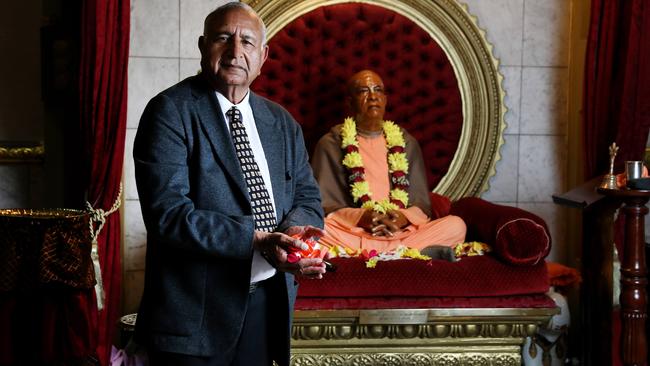
Australia’s peak Hindu body has declared it has lost faith with the Greens amid its “divisive comments and concerning tone”, warning it of a long road ahead to regain the community’s trust after the party’s dismal Queensland election showing.
The significant political intervention by the Hindu Council of Australia comes after the Greens’ backward Queensland performance last Saturday, when it failed to advance, and appeared to lose one seat while barely clinging onto another.
It follows criticism of the party’s tactics, particularly its harnessing of the Israel-Hamas war to court votes, and after Liberal and Jewish leaders urged voters to preference the Greens last at the next federal poll – a call that has been echoed by the Hindu Council’s national vice-president, Surinder Jain.
Saying the body had an “obligation” to inform its community of the approaches and policies of political parties, Mr Jain criticised the Greens’ “rhetoric” in the past 12 months, adding the council had and would encourage its members to preference the party last.
“The Greens have a long road ahead to regain the trust of the Hindu community after a year filled with divisive comments and a concerning tone,” Mr Jain told The Australian, speaking from a statement issued by the council.
Denouncing the party’s approach and language that had “targeted” certain communities, Mr Jain said the Greens would need an overhaul and would not easily regain the Hindu community’s support.
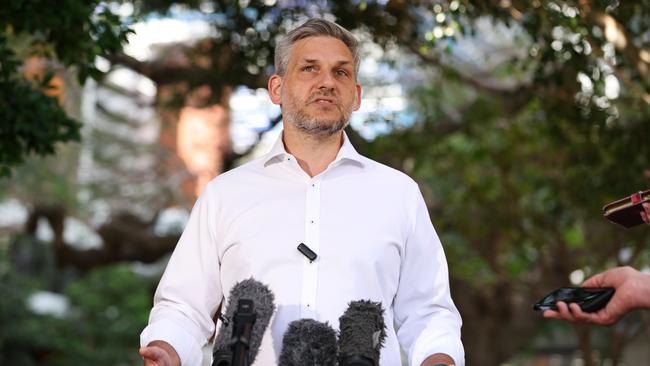
“We expect more from our elected officials than we have witnessed, and until genuine change occurs we will continue to urge our community to place the Greens last on their ballots,” he said.
The stance is significant given the size of the Hindu community across the country, likely totalling more than 700,000 people.
Mr Jain said the council had provided counsel to its Queensland members ahead of Saturday’s poll, and that the results were a “clear example” of the role it had played in helping its members make “informed decisions”.
“Hindus, along with the Jewish community, expressed a strong desire to put the Greens last,” he said. “We hope this outcome provides the Greens with an opportunity to reflect deeply on the election results and consider the various communities around Australia that feel targeted and endangered by their rhetoric.”
Labor is now targeting Max Chandler-Mather’s federal seat of Griffith, and the Liberal National Party is hopeful of taking Ryan and Brisbane from the Greens.
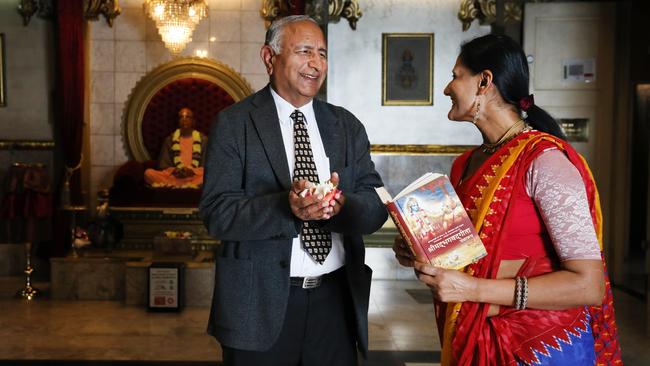
In Queensland, a coalition of community groups campaigned heavily on preferencing the party last, including one Hindu organisation, although the Hindu Council itself was not affiliated to it.
It followed a similar campaign at September’s NSW local government elections, with success in wards across Sydney’s eastern suburbs and the Inner West council area.
Greens deputy leader Mehreen Faruqi is of the Muslim faith and originally from Pakistan, and has criticised Anthony Albanese for “cosying up” to Indian Prime Minister Narendra Modi, whose government she has described as “authoritarian”.
Although not homogenous, Australia’s Hindu community totals about 700,000 members and is 2.7 per cent of the population, according to the latest Australian Bureau of Statistics census, and its abandonment of the Greens would be significant blow at the ballot box.
About 3.2 per cent of Australia’s population is of the Muslim faith, the largest denomination after Christianity, and its own leaders are organising to target Labor for what some Islamic leaders believe is a weak stance on Israel.
Mr Jain and the Hindu Council have been staunch supporters of the Jewish community since the onset of the war, and have also spoken out strongly against rising hate speech in NSW. Their intervention comes as the council launched its We Acknowledge, We Admire and We Aspire campaign, which builds on the community’s “proud history of championing” Australian values.
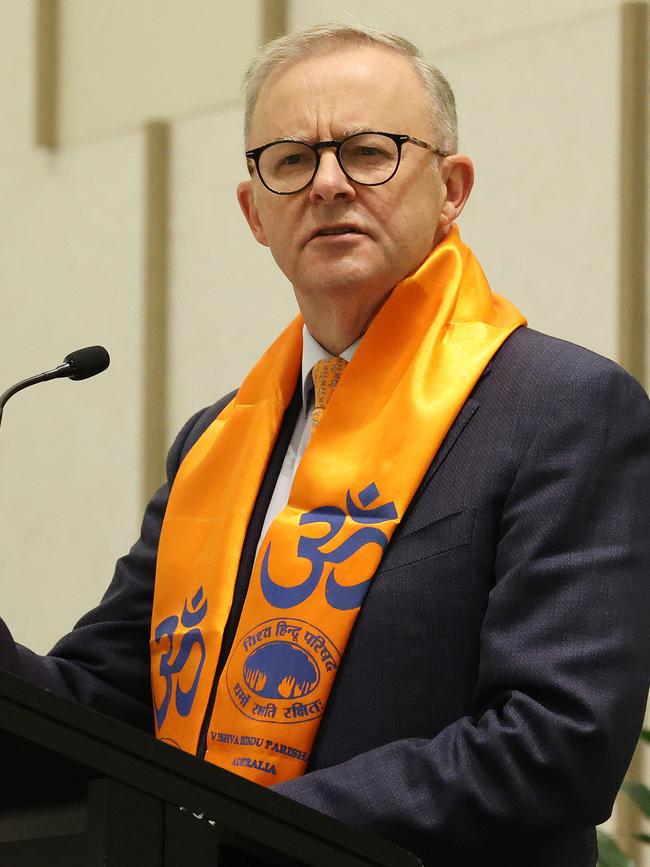
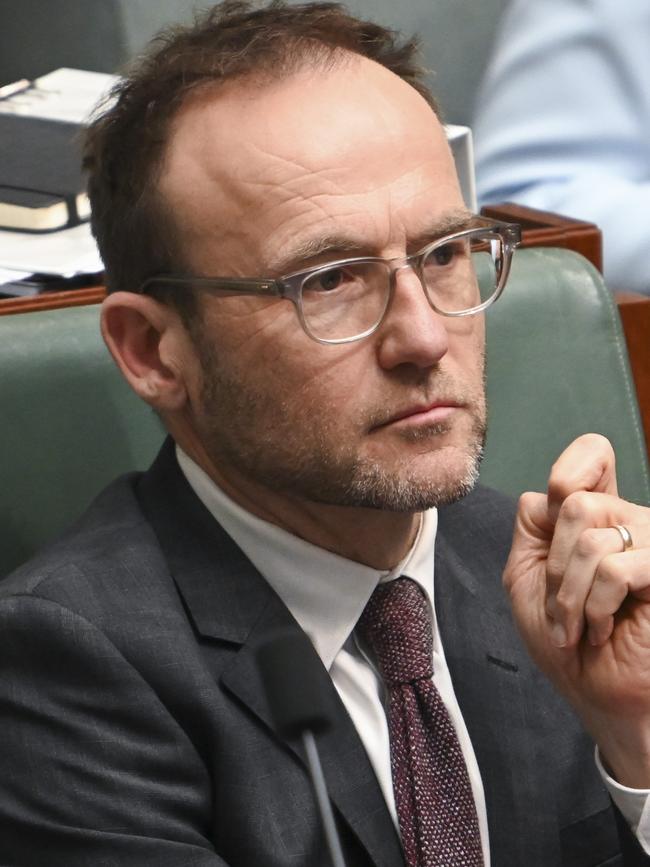
The campaign focuses on the key Hindu and Australian values the community uphold, including acknowledging traditional owners, advocating for freedom of speech and religion, the rule of law and democracy, and cohesion and tolerance.
The council played a “key role” advocating for legislation banning Nazi symbols, which in turn empowered the community’s right to use the sacred swastika symbol in a Hindu setting, and successfully rallied behind Sydney mother Swastika Chandra in April after Uber banned her, given her name’s Nazi connotations.
Praising the work of independent, harmony-focused body Faith NSW and its co-chairman Darren Bark, Mr Jain said the Hindu community knew it lived “in the best country in the world” and urged for action on strengthening social cohesion in Australia. “It is clear the cracks of hatred … have turned into significant fractures during recent challenges,” Mr Jain said.
On a seat-by-seat basis – unlike in southwest Sydney amid an organised Muslim political movement – a strong anti-Greens vote from the Hindu community is unlikely to have the same impact but could have an effect on the divisions the party hopes to hold in Queensland.
The marginal NSW seat of Parramatta is the electorate with the largest Hindu population, with 20 per cent of its about 100,000 voters from the faith, the most represented religion in the seat.
The seat is held by Labor’s Andrew Charlton with a 5 per cent margin. The Greens placed third in 2022, but the seat is also a target for The Muslim Vote group, which is likely to co-ordinate an independent campaign.
Hindus make up about 18 and 11 per cent of voters, respectively, in the NSW electorates of Greenway and Chifley, and about 13 and 10 per cent of voters in the Victorian seats of Lalor and Gellibrand.
Migration and settlement expert Devaki Monani said Australia’s Hindu community was becoming – if it hadn’t already – a “powerful political force”.
“Even at the upcoming federal election (the Hindu vote could be important) – it’s a big community … and it is educated, informed and comes from a democracy (background),” the Charles Darwin University lecturer said.
Dr Monani said parliamentarians knew the importance of good relationships with Hindu leaders.
“(The community) is a big political force, many are aspiring to join politics, and you see that through the number of advisers who now belong to the Hindu faith,” she said.
Dr Monani added that both Labor and the Liberals were currently “pro-India”, which was noticed among the diaspora, and that ties between the Jewish and Hindu communities were strong.


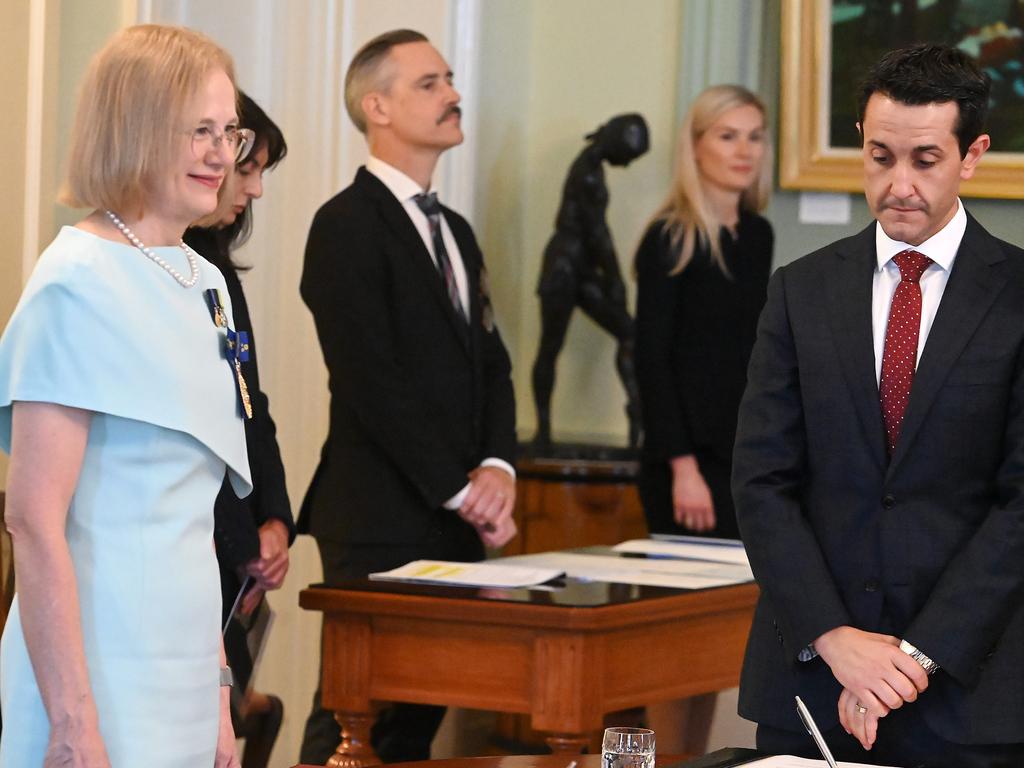




To join the conversation, please log in. Don't have an account? Register
Join the conversation, you are commenting as Logout